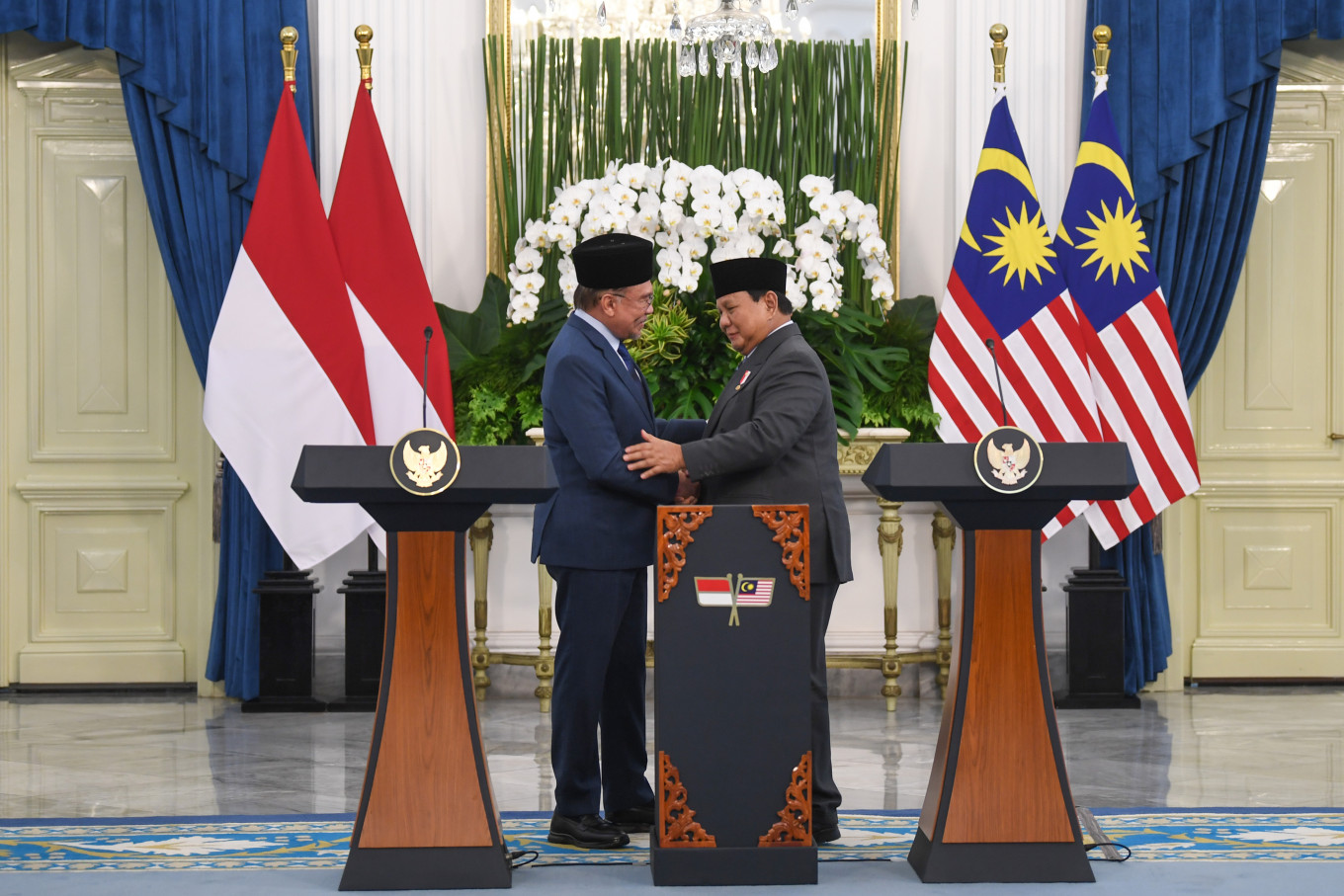Popular Reads
Top Results
Can't find what you're looking for?
View all search resultsPopular Reads
Top Results
Can't find what you're looking for?
View all search resultsThe RCEP summit matters
An RCEP summit is critical now more than ever, as the global economic landscape is increasingly fragmented and marked by rising protectionism and inward-looking trends.
Change text size
Gift Premium Articles
to Anyone
T
he adage, "Why do you look at the speck of sawdust in your brother’s eye and pay no attention to the plank in your eyes?" serves as a crucial reminder for the Indonesian government. While it intensively seeks new sources of economic growth amid the United States-China tariff war, it seems to overlook a powerful tool already at its disposal: The Regional Comprehensive Economic Partnership (RCEP).
Despite Indonesia being a member of the world's largest free trade agreement, progress in this country on the implementation of this legally binding concord has been largely unheard of, with the government seemingly pursuing other avenues.
President Prabowo Subianto has, for instance, immediately sought membership in the non-binding BRICS, which now gathers Brazil, Russia, India, China, South Africa, Egypt, Ethiopia, Iran, Saudi Arabia and the United Arab Emirates, with Indonesia joining Jan. 6. Indonesia has also signed up for the Japanese-led Comprehensive and Progressive Trans-Pacific Partnership (CPTPP), with 12 current members and China having applied.
While both BRICS and CPTPP offer promising long-term economic facilities for developing nations like Indonesia, their benefits currently remain largely theoretical.
Therefore, we urge President Prabowo to instruct his key economic and foreign affairs ministers to immediately follow up on his recent discussion with Malaysian Prime Minister Anwar Ibrahim concerning the RCEP. This significant free trade pact has remained largely dormant since it came into force on Jan. 1, 2022.
The President should prioritize foreign policy efforts to draw the attention of the 10-member ASEAN at the highest level to the RCEP, which, for Indonesia, remains primarily a paper agreement despite being legally binding for its 15 member states: all ASEAN nations, along with China, Japan, South Korea, Australia and New Zealand.
The ASEAN summit and dialogues with partners in Malaysia this October present both Prabowo and Anwar a golden opportunity to push for their RCEP agenda. The two ASEAN leaders have already agreed to leverage this summit to collaboratively materialize global economic agreement.
Leaders of RCEP member states, including Chinese President Xi Jinping, Japanese Prime Minister Shigeru Ishiba, South Korean President Lee Jae-myung, Australian Prime Minister Anthony Albanese and New Zealand Prime Minister Christopher Luxon, will be in attendance at the ASEAN event.
Despite the RCEP's monumental scope and profound promise, its full potential remains largely untapped. A summit, therefore, is opportune to address the matter. This summit is critical now more than ever, as the global economic landscape is increasingly fragmented and marked by rising protectionism and inward-looking trends.
A leaders' summit in Kuala Lumpur would be the ultimate venue for high-level coordination, allowing for the articulation of shared trade norms and a unified stand to defend open trade against these growing protectionist forces. This is about harnessing the collective influence of the entire Asia-Pacific region.
President Prabowo should instruct Foreign Minister Sugiono to work with his Malaysian counterpart, Mohamad Hasan, during next week’s ASEAN foreign ministerial meeting and the ASEAN Regional Forum (ARF) in Kuala Lumpur to initiate a discussion on the RCEP with their ASEAN peers. Their agenda should include concrete steps for the regional grouping to realize tangible benefits from the RCEP.
Coordinating Economy Minister Airlangga Hartarto is a resourceful person in this matter. He is the most knowledgeable cabinet member regarding the RCEP, having represented Indonesia from early negotiations to the final accord in 2022. It was Airlangga who recently revealed the agreement between Prabowo and Anwar to boost strategic collaborations between ASEAN and other major partners during their bilateral summit in Jakarta on June 27.
Collectively, RCEP's 15 economies represent a staggering 30 percent of global GDP (US25.8 trillion), 30 percent of global trade and a huge market of over 2.3 billion people. Its immense potential promises to boost incomes by an estimated $653 billion across the region by 2030.
We urge President Prabowo to actively pursue and realize the concrete benefits of the RCEP. Knowing his openness to constructive ideas, we are confident he will consider this appeal.











